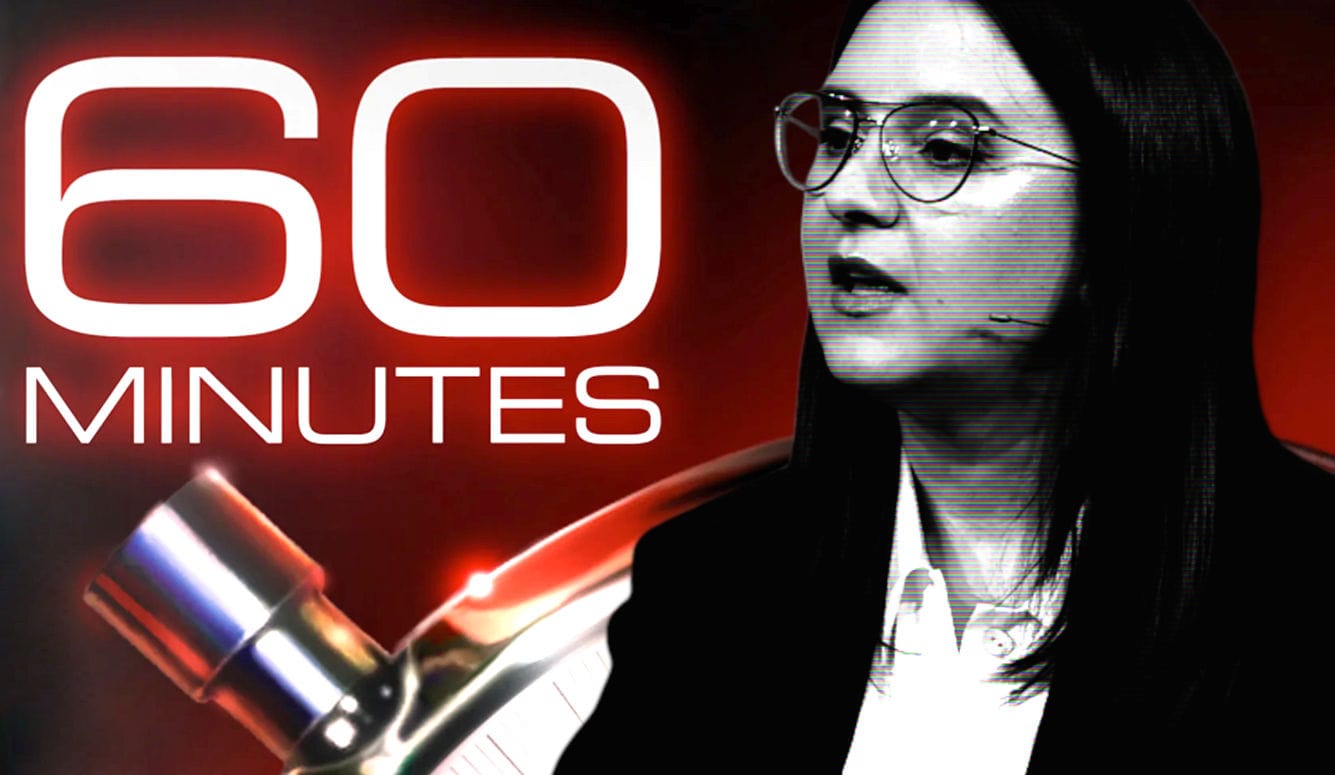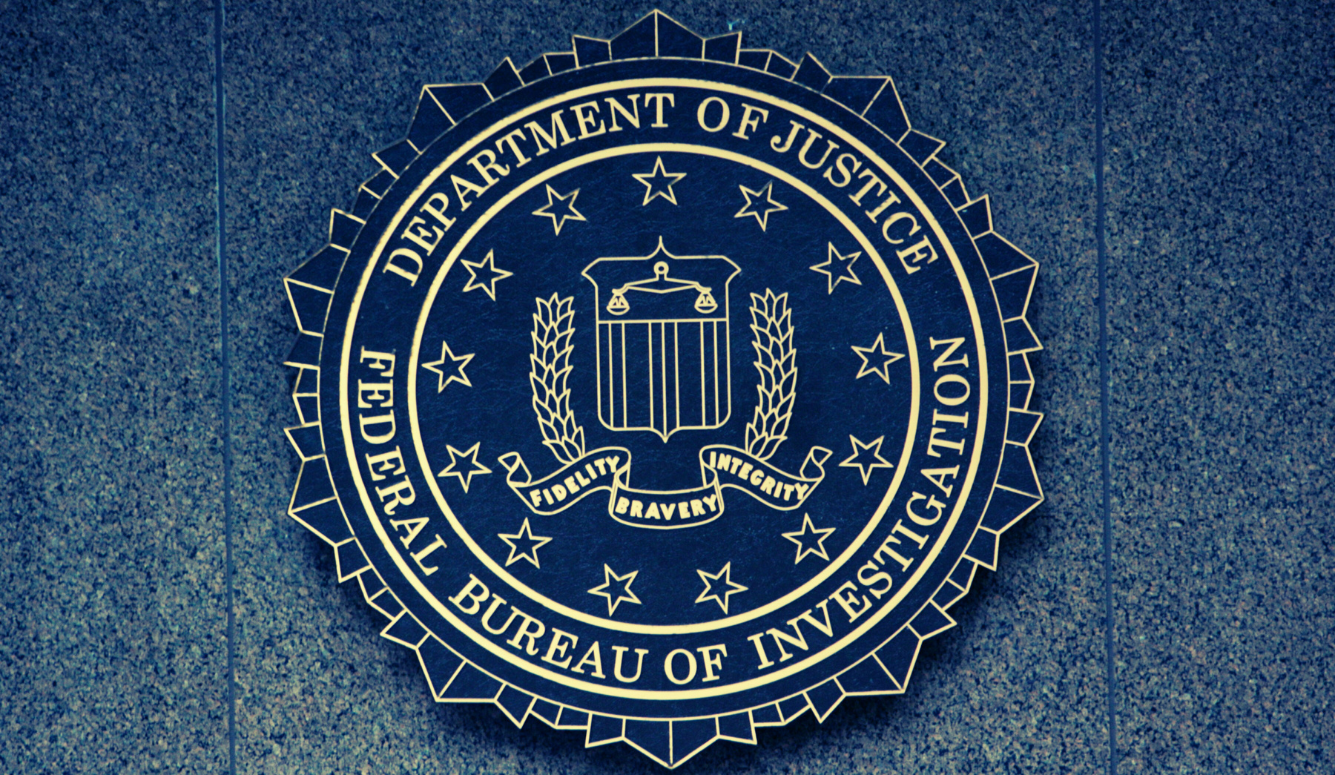Top Stories
Why the Techlash Won't Go Away
Suddenly, the same Internet companies that Democrats celebrated as forces for change in dealing with education, income inequality and global democracy.

“This would probably not have happened if Hillary had won the 2016 presidential race,” is the kind of comment you may hear these days around Silicon Valley as gloomy high-tech titans are forced to contend with a growing political backlash against what critics allege is the concentrated wealth and power in the hands of omnipotent tech companies. And they accuse social media and other online services of posing risks to national security and to freedom of speech, with both Republican and Democratic lawmakers calling for some form of government regulation of the Internet.
Sorry doesn't undo the data breach.
Sorry doesn't un-elect Donald Trump.
Sorry doesn't prevent Russian intrusion.
Stop saying sorry and actually do something so it doesn't happen again!
Mark Zuckerberg: 'I'm really sorry that this happened' https://t.co/h81WCPVmC1 via @CNNMoney
— Austin Stang (@stang_austin) March 22, 2018
Hell hath no fury like an Internet Utopianist scorned.
The irony is that much of this backlash, or “tech-lash”, has been driven by many of the same Democrats that companies like Google and Facebook had backed during the presidential campaign, when employees of Alphabet Inc., Google’s parent company, donated US$1.6 million to Democratic candidate Hillary Clinton’s campaign, or about 80 percent more than the amount given by workers at any other corporation, according to The Wall Street Journal.
And Eric Schmidt, the Executive Chairman of Google between 2001 and 2017, helped set up companies to analyse political data for Clinton’s presidential campaign, and “even wore a badge labelled ‘STAFF’ at Clinton’s election-night bash,” reported the Journal.
Schmidt and other high-tech executives, including Mark Zuckerberg, Facebook founder, had met with Democratic President Barack Obama at the White House through advisory boards and other events, which explains why dozens of former officials at the Obama administration headed west to land in jobs at Google and Facebook as well as in Apple, Airbnb and Uber.
In fact, “So many members of Obama’s administration have gone to San Francisco that one former political official now in the tech industry likened it to American expats hanging out in Paris after World War I,” quipped CNN.
From that perspective, if Hillary would now be occupying the White House, those leading Silicon Valley tycoons would be topping her inauguration’s guest list, and some of them would probably be invited to serve in her administration; according to some reports, Clinton had considered Facebook COO Sheryl Sandberg as candidate for Treasury Secretary.
Moreover, under a Democratic president, there would have been no reason to expect that the cosy relationship between the Democrats, which goes back to the administration of another President (Bill) Clinton – Bill – would not continue to be maintained, especially when so many ex-Democratic Capitol Hill staffers, joined by former officials from the Clinton and the Obama administrations, were getting ready to serve as Washington lobbyists for Silicon Valley companies.
The road between Redmond, Washington and Washington, DC, seemed to be very short, and, hey, you could see the White House from Cupertino, California. And after Jeff Bezos had purchased the capital city’s only newspaper, The Washington Post, which covered Republican Donald Trump during the election campaign with the same enmity that Joseph Stalin’s Pravda covered his nemesis Leon Trotsky, the Post could be relied upon to assist in promoting the new Democratic agenda.
And that agenda was expected to include the continuing protection of the interests of Microsoft, Apple and Amazon, and the embracing of the same kind of tech-friendly policies that helped companies like Facebook and Google prosper during the Obama administration.
Moreover, if Hillary had celebrated her election victory last November, one would not have been surprised to encounter a Democratic Party/ Silicon Valley spin according to which Facebook, Google and Twitter had actually played an important role in helping Hillary defeat The Donald; something along the lines of “Look how those nerdy kids from California helped use the Internet to defeat the old and so-uncool and technologically challenged Trump.”
But what ought to have happened did not happen, and the devastated Clinton campaign and furious Democrats insisted that the electoral defeat had nothing to do with their candidate. And they went on to blame Facebook, Google, Twitter and tech companies for Trump’s victory, accusing them of allowing the Kremlin to use their online services to push fake news stories and controversial headlines that targeted the Democratic candidate.
Suddenly, the same Internet companies that Democrats celebrated as forces for change in dealing with education, income inequality and global democracy, and upon whose advice they relied for these and other issues, were portrayed as unwitting agents of Vladimir Putin and his campaign to subvert American democracy. “So, if you were championing the best things about the Internet, it was easy to be disappointed that it was hijacked to subvert the very things it could foster,” said Karen Kornbluh, a former Obama administration official.
Or to put it differently, hell hath no fury like an Internet Utopianist scorned.
As I argued in “Why Liberals Are Turning Against the Internet”, even if one accepts that the Russians (independently or in collusion with the Trump campaign) were directing a campaign of disinformation through social media through the purchase of digital advertising, there are still no indications that fake news tipped the outcome in favour of Trump in key electoral states such as Ohio, Michigan, and Pennsylvania.
But Democratic lawmakers and activists have made it clear that their love affair with Silicon Valley is over, and have been turning their guns on the tech companies. They are proposing ways to avert more attempts by foreign governments to interfere in American elections, and calling for strengthening consumer protection and competition policies, and for updating antitrust policies in ways that would affect the tech sector.
The Republicans Join the Anti-Tech Jihad
At the same time, Republican politicians and conservative opinion-makers have never trusted the guys and gals in the Silicon Valley. With few exceptions, such as Peter Thiel, founder of PayPal, a leading supporter of Candidate Trump in 2016, they have allied themselves politically with the Democrats.
So while Democrats and liberals have been trashing their former BFF in California and Washington State, the political right has joined them in full force in the anti-big-tech jihad, accusing online giants Google and Facebook of suppressing politically incorrect conservative views on the digital media.
Hence James Damore, the engineer who was fired by Google after he wrote a memo suggesting, that biological differences accounted for the low number of women in engineering, symbolises the cultural war that conservatives have been conducting against the tech companies.
On the policy and legislative fronts, Republican lawmakers and the new Trump-appointed Chairman of the Federal Communication Commission (FCC) led by Ajit Pai, joined by the Republican-leaning commissioners on the Federal Trade Commission (FTC), have made it clear that they intend to roll back many of the rules adopted during the Obama administration, such as FCC’s 2016 privacy rules. These are also the rules that gave Internet firms such as Google or Facebook a huge advantage over their competitors in the telecom industry, including cable and wireless companies such as AT&T and Comcast Corporations.

Democrats and Republicans Change Places
Recall how, in the 1950s and 1960s, liberals were charging that a Republican administration was trying to suppress the publication of the Pentagon Papers in The New York Times and TheWashington Post, while conservatives argued that government has the right to restrict the freedom of the press in the name of national security?
Well, the two sides have now changed places. The traditionally pro-free speech Democrats and liberals seem to be looking for ways to police the content that these companies distribute, and accuse them of serving the interests of Moscow, while the Republicans and conservatives bash Google and Facebook as being too censorious while portraying themselves as defenders of free expression on the Internet.
But what seems to be uniting the two sides is the scapegoating of Silicon Valley as a political, social and economic menace that places democracy, national security and perhaps the entire American way of life at risk, in addition to exhibiting monopolistic tendencies and manipulative product designs. All of that requires that that the government “do something” about it in the form of control and regulation so as to protect the interests of the public.
And guess who has been joining them in their crusade to police and regulate the new forms of digital media? The old and financially struggling Mainstream Media (MSM). Hence CNN chief Jeff Zucker has recently urged government regulators to go after Facebook and Google, “helping to make sure everyone else survives,” adding: “I think that’s probably the biggest issue facing the growth of journalism in the years ahead.”
To put it differently, the politicians in Washington are being asked to protect CNN and other MSM outlets from new competition. Imagine, the owners’ horse-and-buggy industry calling on the government to protect them from the growing auto industry at the start of the Twentieth Century, “helping to make sure everyone else survives” since that was, after all, “the biggest issue facing the growth of transportation in the years ahead”.
If you want to get an idea of how the new political Zeitgeist is turning against Silicon Valley, all you have to do is watch is the nightly Fox News television show, “Tucker Carlson Tonight”. The former libertarian commentator is blasting Facebook and Google every other night for supposedly taking control of our lives.
Tucker Carlson is joined by liberal commentators like Franklin Foer, who, in his new book, World Without Mind: The Existential Threat of Big Tech, blames the high-tech industry for almost all America’s social and economic woes.
Liberals may despise Trump and conservatives detest Hillary, but it seems that both now join forces when it comes to hating Mark Zuckerberg, who only a few years ago was being urged by many Democrats and Republicans to run for the presidency.
Not the Kind of Tech-Lash We Expected.
Interestingly enough, when then Economist magazine editor Adrian Wooldridge coined the term “tech-lash” at the end of 2013, he predicted that the “tech elite will join bankers and oilmen in public demonology”, and imagined “the growing peasants’ revolt against the sovereigns of cyberspace.” The Silicon elite “will cease to be regarded as geeks who happen to be filthy rich, and become filthy rich people who happen to be geeks.”
The point he was making was that Silicon Valley was being protected for many years from popular anger about inequality, but, now that the tech giants have structured their businesses to give as little back as possible, they will be forced by the angry public and its representatives in Washington to give much more back to the American people.
But contrary to Wooldridge’s predictions, the tech-lash has not been driven by the “forgotten men and women” of America. We clearly have experienced a political backlash against the “globalist” elites in Washington and Wall Street that has been translated into demands to protect American manufacturing from unfair trade practices, to restrict illegal immigration, and to replace the political incumbents with political outsiders.
Yet anyone who has followed these political developments that have marked the rise of a populist wave would have noticed that most Americans—including the unemployed blue-collar workers residing in the country’s rural areas—have rarely placed Apple or Microsoft, Google or Facebook on the list of the enemies they plan to crush when the revolution comes.
Angry voters from both the political right and left, have made it clear that they detest financial titans (symbolized by never-ending references to “Goldman Sachs”), the companies that relocate their operations to China and Mexico, and their lobbyists in Washington. But how many protesters have bashed Jeff Bezos, or demanded that Mark Zuckerberg be sent to jail, or protested in front of the headquarters of Microsoft and Google?
Americans Love Their iPhone
In reality, most Americans trust Amazon, Apple, Microsoft, Google, Facebook and Twitter more than they trust their banks, not to mention their politicians and media, and somewhat less than they trust the U.S. military.
Most Americans love these companies, and this is made clear every day when they purchase their cheaper-and-cheaper products (often online, and often while spending many hours accessing their favourite free social media outlets – the same outlets that are maligned non-stop by their representatives in Washington as well as by the MSM, who accuses them of posing a threat to happy consumers.
That the high-tech geeks have turned to be “ruthless capitalists”, as Wooldridge put it, would only come as a shock to those Internet Utopians who imagined that Steve Jobs would free the world from all tyranny and exploitation, and who may have taken too seriously Apple’s 1984 Super Bowl television commercial, introducing the Macintosh personal computer.
It seemed to suggest that the company was intent on ensuring that we would not be residing in the kind of grimly political environment that George Orwell depicted in his classic dystopian novel, 1984.
But then the owners of Apple, Microsoft, Google, Facebook and Twitter have never pretended to be Social Justice Warriors, but have seen themselves as innovative and shrewd businesspeople who, by applying the new information technology, intended to provide consumers with what they wanted, and in the process made a lot of money and also helped drive revolutionary economic, social and political changes, in the same way that, say, the founders of the auto industry had done before them.
Unleashing the Forces of “Creative Destruction”
Most significantly, Apple and its ilk helped shift political and economic power from large and centralized public and private organizations to individuals who now had access to more choices that are available to them online, whether it comes to purchasing cheaper consumer products through Amazon or to following political developments on a variety of news sites.
That, in turn, has helped erode the power of the dominant political and business players, posing a challenge to the members of the establishment who control the existing political parties, and to the MSM and its ability to set the public agenda, while threatening the survival of retail stores and other “old” businesses.
From that perspective, politicians are turning now on the technology giants and are burdening them with fines and regulation. The fact that MSM journalists are applauding them in this mission has less to do with their stated goal of defending the public interest and more to do with protecting their own interests.
The tech giants are now being vilified in Congress and the press as wicked would-be-monopolists who are responsible for weakening democratic institutions, suppressing economic competition, and destroying jobs. But what they are really doing is weakening the power of the bosses of the Democratic and Republican parties while strengthening the hands of populist movements, led by the likes of Donald Trump, who are defying the elites who maintain the political status-quo. They are ending the monopoly that the MSM exerts over the manufacturing and distribution of news. And they are unleashing the forces of “creative destruction” of the free market.
It Is Not About Russian Trolls
This is what the tech-lash is all about. It is not about the alleged threat of Russian Internet trolls using social media to destroy American democracy, or even the monopolistic tendencies of the high-tech industries. It is more about an aggressive Political Man trying to put the Economic Man in his place, and reminding him who is in charge. Which explains why it would have probably happened even if Hillary Clinton would now be occupying the White House.
At this stage, this campaign seems to target social media companies that are being pressed to provide more transparency about the origin and accuracy of online content, but the rest of the high-tech industry is expected also to come under greater scrutiny, with antitrust authorities being given more authority to regulate their operations and leading eventually to proposals to break-up the big tech companies.
The high-tech industry has spent the last two decades expanding their “presence” in Washington, with Apple, Microsoft and Facebook investing millions of dollars in their lobbying operations and hiring former White House and Congressional staff to protect their interests and to warn politicians not to kill the goose that laid the golden eggs.
But now when push comes to shove, it is unlikely that these lobbyists would be able to contain the mounting tech-lash. The only choice facing these high-tech companies right now is to continue growing and innovating, and to hope that the politicians in Washington will not be able to catch up with the accelerating technological changes.






